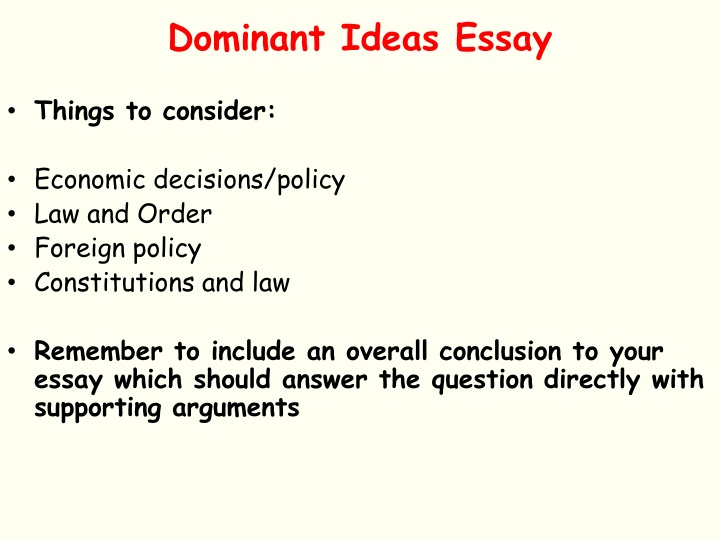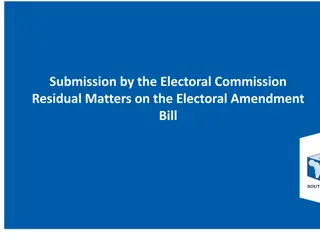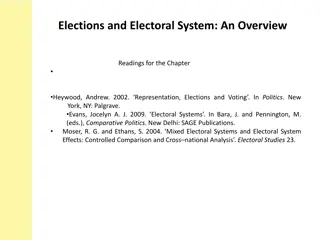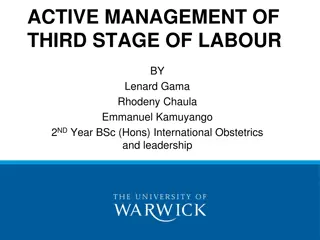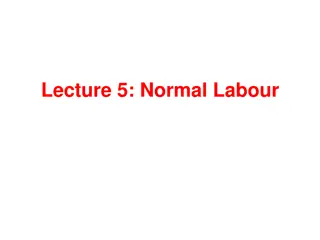Impact of Dominant Ideas on Electoral Performance: A Comparative Analysis of Thatcherism and New Labour's Third Way
Examining the influence of dominant ideas on electoral success, this essay delves into the contrasting ideologies of Thatcherism and New Labour's Third Way within British politics. By scrutinizing their economic decisions, foreign policies, and overall governance, the essay analyzes how these ideologies have shaped electoral performance and public perception over time.
Download Presentation

Please find below an Image/Link to download the presentation.
The content on the website is provided AS IS for your information and personal use only. It may not be sold, licensed, or shared on other websites without obtaining consent from the author.If you encounter any issues during the download, it is possible that the publisher has removed the file from their server.
You are allowed to download the files provided on this website for personal or commercial use, subject to the condition that they are used lawfully. All files are the property of their respective owners.
The content on the website is provided AS IS for your information and personal use only. It may not be sold, licensed, or shared on other websites without obtaining consent from the author.
E N D
Presentation Transcript
Dominant Ideas Essay Things to consider: Economic decisions/policy Law and Order Foreign policy Constitutions and law Remember to include an overall conclusion to your essay which should answer the question directly with supporting arguments
To what extent do the dominant ideas of political parties have a positive impact on their electoral performance? (20) In your answer you must refer to two sets of dominant ideas either within one political party or between two political parties you have studied.
Introduction Your introduction must make clear which political parties/dominant ideas you will discuss and the aspects of those dominant ideas you will discuss. You must also ensure that you suggest whether the dominant ideas have had a positive impact on the electoral success as the question suggests.
Introduction The dominant ideas of the Conservative and Labour parties in Britain have changed considerably over time. In particular, Thatcherism and New Labour s Third Way caused Both Thatcherism and the Third Way focused on making distinctive changes to ideology in regards to Such dominant ideologies have had a clear impact on the electoral performance of their respective parties, with
Paragraph Plan (think of two mini paragraphs side by side) Discuss the dominant idea of one party what was a key aspect in Thatcherism (ideology with example of a specific policy change) Highlight why this change was significant for the party what did the public think? Indicate how this impacted upon electoral performance give key stats and figures from elections. Repeat for the other party!
Foreign Policy Paragraph Ideas Thatcher s view on foreign policy was initially shaped by her response to the Falklands War and was further influenced by the growing nationalism of the 1980s. (K) Thatcherism initially did not focus on foreign policy as the country was in internal conflict over issues such as trade unionism. Thatcher s international profile was weak until the Falklands War Thatcher s swift response (KE) Thatcher s response to the Falklands War and her subsequent image as a strong, formidable war Prime Minister ensured that the Conservative Party maintained their election success. In the 198 election, Thatcher s party gained (A) In contrast, the approach of New Labour to foreign policy was clear from the outset of their time in office. Tony Blair labelled his party s approach as Liberal Interventionism (K) Response to conflicts in Afghanistan Iraq. (KE) Electoral success? Reaction of the ethnic minority community to Iraq war lost Labour seats etc. (Analysis)
Analysis is KEY! Analytical comments which relate to the question are KEY to passing this essay. Below is an example from the SQA: New Labour s approach to taxation was aimed at attracting support from both middle-class voters and skilled manual workers. The support of these groups was seen as central to Blair s landslide victory in 1997. For example, it gained more votes than the Conservatives among middle-class C1 voters and also saw significant gains among A and B voters. In fact, the gap between Labour and the Conservatives among these voters fell from 32% advantage for the Conservatives to only 5%.
Conclusion Summarise both dominant ideas in the one paragraph, highlighting the appeal to voters overall and whether the parties maintained their electoral success. For New Labour you could summarise: New Labour s key ideas were successful in appealing to both working-class and middle-class voters. In 1997 and in 2001, New Labour secured landslide victories with a broad-based electoral coalition that successfully appealed to both middle-class and working-class voters. Under Tony Blair, Labour managed to win three successive elections for the first time ever. Blair and New Labour remained in government for 13 years, the longest any previous Labour government had lasted was six years. Labour s key ideas on the economy, but also on areas such as crime, appealed to many traditional Conservative voters and as a result New Labour was successful in many areas of southern England who hadn t voted Labour for decades.
